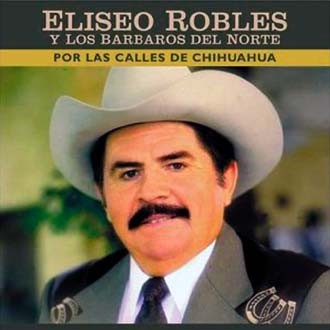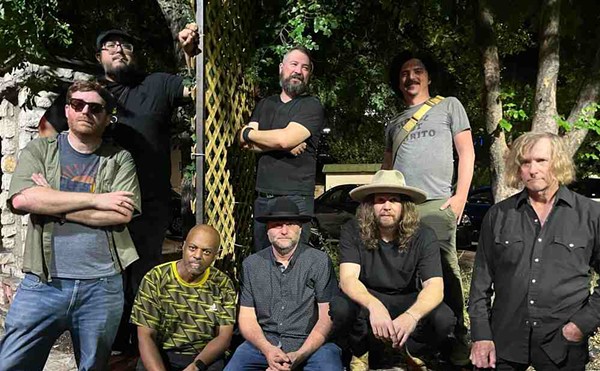|
Heartfelt warmth and sorrow-filled tracks from Eliseo Robles and Rosendo Cantu There's something about the poetic heartbreak of traditional Mexican music that compels los hombres que no deben llorar to break down and beg for forgiveness in verse, if only because they were too stubborn to do so in person. These slow waltzes and melodic rancheras give voice to such unspoken emotions, and for those facing similar circumstances, they provide solace and suggest that brighter days are ahead. Recent releases from norteño veterans Eliseo Robles and Rosendo Cantu (who recently played an impressive, late-night set at Noche Caliente) do just that, without pretense or schmaltz. Both artists stay true to tradition by playing corridos primarily, interspersed with some baladas and cumbias, but free from synthesizers and studio overdubbing characteristic of some of their more innovative and experimental contemporaries today (not to mention the plastic sounding pop groups dominating the airwaves). This is roots music at its core - acordeón, bajo, batería y voz - from two of the genre's stalwarts. Eliseo Robles, formerly a vocalist for Ramón Ayala, sings with a heartfelt warmth reminiscent of the legendary musician. On the 12 tracks of Por las Calles de Chihuahua, he combines bravado and vulnerability as he remembers past loves - and who's to say that his lament for the death of El Tuerto, his cherished, worn-down horse, isn't a metaphor for the slow disappearance of a way of life?
Throughout the disc, Cantu achieves a vocal expressiveness on par with he best classically trained singers. Though charged and raw, his vulnerability comes through on these sorrow-filled tracks. Taken in combination with Edwin Sandoval's melodious, moving accordion playing (listen to his simple yet beautiful riffs on "Nomás Por Celos") the sound of Cantu's tremulous voice cracking, as if he were on the verge of tears, conveys the songs' sentimiento perfectly, with no translation necessary. •
|
Mexican torch songs
Wed, Nov 24, 2004 at 12:00 am

KEEP SA CURRENT!
Since 1986, the SA Current has served as the free, independent voice of San Antonio, and we want to keep it that way.
Becoming an SA Current Supporter for as little as $5 a month allows us to continue offering readers access to our coverage of local news, food, nightlife, events, and culture with no paywalls.
Scroll to read more Music Stories & Interviews articles
Newsletters
Join SA Current Newsletters
Subscribe now to get the latest news delivered right to your inbox.
















